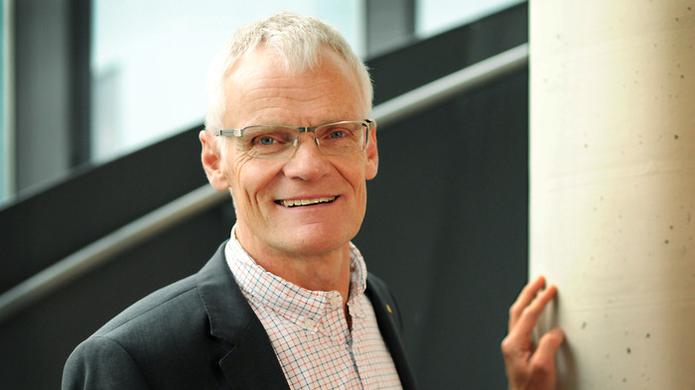The vice-chancellor and the university uphold academic freedom
Academic freedom is an issue that is currently high on the agenda. It is discussed in the news, social media, opinion pieces and, not least, in higher education. Academic freedom is vital if higher education institutions are to conduct independent research and education, and in this piece Vice-Chancellor Gustav Amberg presents his perspectives on the issue.

Chapter 1, Section 6 of the Higher Education Act states that academic freedom must be promoted and protected. This means that research problems can be freely chosen, research methods may be freely developed, and researched results freely published.
“Academic freedom is a precondition for all academic activities, and for the university’s ability to conduct curiosity-driven research and educate students. Our role is to freely create and disseminate critical knowledge using a wide range of perspectives. In accordance with our vision, we encourage critical reflection on contemporary challenges, and academic freedom is vital to this,” says Gustav Amberg, vice-chancellor of Södertörn University.
The Swedish Higher Education Authority recently released a report on academic freedom in Sweden External link.. One of its conclusions is that, from an international perspective, academic freedom in Sweden is generally good, particularly for aspects that relate to individual academic freedom. However, half of all university teachers, researchers and doctoral students feel that there are challenges to academic freedom at Swedish higher education institutions. Political pressure is one factor that is highlighted as a threat.
External link.. One of its conclusions is that, from an international perspective, academic freedom in Sweden is generally good, particularly for aspects that relate to individual academic freedom. However, half of all university teachers, researchers and doctoral students feel that there are challenges to academic freedom at Swedish higher education institutions. Political pressure is one factor that is highlighted as a threat.
“As regards political involvement, I do not oppose politicians’ opinions about training nurses, doctors and excellent teachers. However, there are European examples of political governance that prevents the teaching of specific subjects, such as gender studies. This is an enormous constraint on academic freedom. We are not in that situation in Sweden, but if it were to happen it would have huge consequences for democracy and society,” says Amberg.
The Association of Swedish Higher Education Institutions, SUHF, published a report on academic freedom External link. in 2024. It states how European studies show that Sweden is one of the EU member states that has the weakest legal protection for academic freedom. In discussions, the idea is sometimes put forward that constitutionally protected academic freedom would ensure a stronger and more robust academia in Swedish.
External link. in 2024. It states how European studies show that Sweden is one of the EU member states that has the weakest legal protection for academic freedom. In discussions, the idea is sometimes put forward that constitutionally protected academic freedom would ensure a stronger and more robust academia in Swedish.
“Academic freedom should be written into constitutional law, because amendments to the Higher Education Act are easy to implement through a decision in the Riksdag,” Amberg says.
He adds that academic freedom also entails academic responsibility, where each researcher must carefully distinguish between making statements within their own area of expertise and when they are speaking as a member of the public. “As a professor of fluid mechanics, I can express myself scientifically as regards liquids and gases, but if I want to talk about other fields, I do so as a normal citizen, not in my role as a professor.”
Wars, disasters and worrying events occur around the world, and international cooperation is important to research in our globalised times. So, what is the university’s approach to research and education in the countries that drive conflicts and do not respect human rights? And how does this impact academic freedom and the university’s external collaboration?
“It is important to differentiate between individuals, states and organisations. As a public agency, the university cannot have its own foreign policy, but must of course comply with the sanctions issued by the Swedish state and the EU, such as those against Russia and Iran. However, there are individual academics everywhere in the world who possess valuable knowledge and with whom we are happy to cooperate,” explains Amberg.
The future of academic freedom, in Sweden and internationally, is under threat from many directions, so the academic community must be alert to various forms of pressure.
“Academic freedom is a vital component of a free and democratic society. It is hugely important for global development, beyond the work that is conducted every day in higher education institutions,” he concludes.
Page updated
24-06-2024

